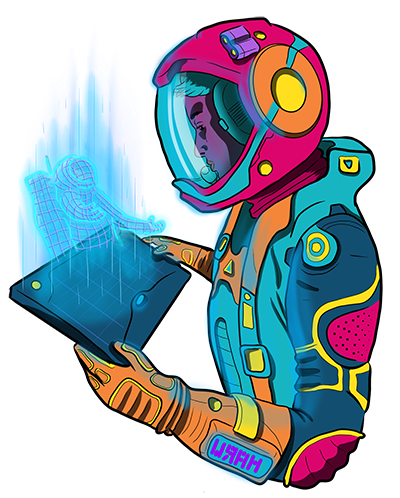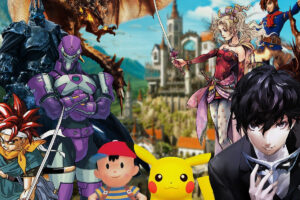Translators have always served as invisible threads, connecting players to stories that weren’t originally written in their language. As International Translation Day approaches, I’m taking a moment to honor and highlight the impact of translators—not only in the real world, but also in the games they make possible for us to play.
Sometimes, translators support the gaming experience from backstage. Other times, a translator’s work steps into the spotlight and becomes a crucial part of the game itself. In both cases, the goal is the same: to help us understand. Whether the work is behind-the-scenes or made obvious, the purpose of translation is to guide us through unfamiliar cultures, ideas, and emotional experiences, thus making what was once distant feel close and personal.
When Translators Are Part of the Game
A growing number of video games are starting to explore the act of translation as part of their storytelling. These titles use language as a key mechanic, asking players to engage with unfamiliar scripts or broken texts. It’s a creative way to make players feel both the thrill and deep responsibility of interpreting meaning.
Heaven’s Vault
In Heaven’s Vault, players step into the role of Aliya Elasra, an archaeologist navigating a vast nebula who must decode fragments of an ancient, forgotten language. What sets this game apart is how central the act of translation is to story progression. Players encounter inscriptions composed of glyphs, and each attempt to interpret them opens new paths, reveals character motivations, or changes how the story unfolds. Crucially, there is no clear answer key. Instead, the game mirrors real-world translation by encouraging players to make educated guesses, recognize patterns, and constantly refine their understanding. Translation in this case is portrayed as a slow, thoughtful, and imperfect process, and one that’s deeply connected to history, culture, and interpretation.

Outer Wilds
In Outer Wilds, players explore a mysterious solar system caught in a time loop, and the only way to unravel its secrets is by understanding the language of the long-extinct Nomai civilization. A translation tool allows the player to read glowing, spiraling script found across different planets. But these texts aren’t supplementary lore. They hold essential clues about ancient experiments, planetary alignments, and the fate of the universe itself. By making comprehension a requirement for progress, the game places trust in the player’s curiosity and reinforces their role as a translator and discoverer as they piece together meaning from fragmented texts and scattered voices of the past.

Mass Effect
Mass Effect, though more of a space opera than a puzzle game, still touches on the importance of translation in large-scale worldbuilding. The game universe features dozens of alien species, each with their own cultures and languages. Yet, characters interact fluidly, thanks to the widespread use of universal translator implants. While this mechanic stays in the background, its presence is not insignificant. At key points in the narrative, the game highlights how fragile the lines of communication can be, and how, when language fails or misses the mark, misinterpretation can spark conflict or end a diplomatic mission. The translator, even if automated, is presented as a stabilizing force in a diverse galaxy. It subtly affirms the value of language access as a condition for cooperation, understanding, and peace.

Why These Stories Matter
Games that explore the power of language and the role of translation are doing more than trying something new. They’re also allowing players—perhaps for the very first time—to experience the work of a translator firsthand. Decoding an ancient sentence or interpreting a phrase becomes a way to reveal the emotional and narrative weight of language: knowledge that real-life translators carry with them at every moment.

In many cases, the translator in these games is portrayed as a seeker of knowledge, a connector between past and present, or a guide through the unknown. These roles echo what linguists do each day in real-world projects, whether they’re adapting video game dialogue, preparing patient materials in a medical setting, or localizing training modules for global corporate teams.
More importantly, these games challenge the idea that meaning is fixed. They remind us that understanding often depends on a person’s context, history, and sense of empathy. These factors of the human perspective make the role of the translator feel less mechanical, and more human, which is exactly how it should be.
The Takeaway
Video games have a unique ability to make abstract ideas feel personal. When developers choose to (re)present translators as characters, mechanics, or themes in their games, they give players the chance to walk in the shoes of someone whose professional work is to make understanding possible.
This International Translation Day, let’s celebrate the real-life translators who have inspired these gaming experiences. Their work isn’t always in the spotlight, but its impact is lasting. Whether they’re adapting language for the screen or being written into it, these linguists are quietly opening doors that players might never have found on their own.



